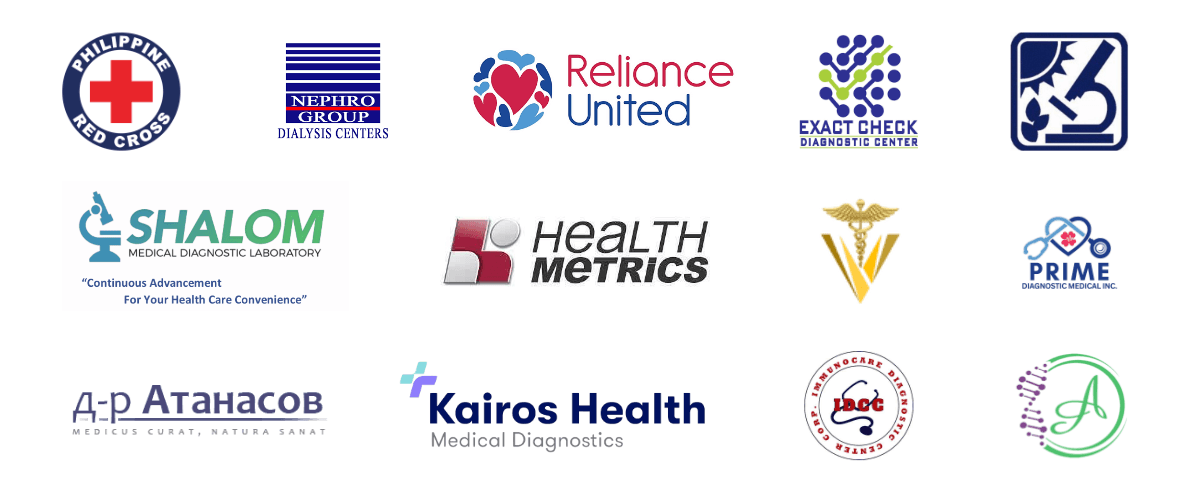
How Labs Will Help Achieve Personalized Care
Originally Published on: 23 May 2022
The ability to look into the inner workings of the human body without invasive procedures has transformed medical diagnosis. In determining one's overall health through information from family history, genetics, and body screening tests, the collected data can be utilized to provide a better picture of the potential illness or disease that the patient may be having.
With the advancements in medical technology over the past a hundred years, researchers and medical practitioners have found a way to be able to measure certain aspects of our human anatomy. As these data are thoroughly analyzed in laboratories, the numerical number attached to the numerous biomarkers of these tests removes virtually all human bias, making these kinds of medical data perfect to dig into.
That being said, these kinds of data provide the doctor a way to personalize their care for a particular patient, allowing for better lifestyle choices being made which leads to improved overall health.
Precision Medicine in Personalized Care

To understand personalized care, it is important to look into the concept of precision medicine, and its importance in diagnosis of disease. In essence, each person is 'genetically-different' due to the chromosomes (or DNA) that are given to us by our parents. Inheriting many things like facial structure, height, and family history, these clues early on in life, coupled along with the lifestyle habits and environment, can already give a prediction on the diseases or illnesses that they may be susceptible to.
With this in mind, the collecting and understanding of all the different data points presented allows for medical attention that is customized to your needs, instead of the 'one-size-fits-all' approach that is commonly used in the dosage of medicines and other drugs for patients. Moreover, these data can be used in mapping out more effective treatments and better prevention strategies for patients, improving one's overall health.
In addition to this, this focus on individualized care and attention to your genetics plays a big role in identifying at-risk family members or relatives that may have inherited the dominant genes for a particular illness. By taking advantage of the current technologies in genetic testing, it has allowed for early diagnosis and lifestyle changes in one's life, depending on their genetic makeup.
Current Tests for Collecting Data

Commonly known tests and body screenings such as blood tests, x-rays, ultrasounds, and biopsies have helped doctors map out diseases for quite some time already. These clinical diagnostic tools have been used in allowing patients to see the inner workings of their body, locating biomarkers such as tumors, fractures, unwanted fluids, and so much more.
However, advances in technologies have allowed for the testing of one's diet and ancestral history to be tested as well. With the consumer diagnostics market rapidly becoming more popular in the market, proper lifestyle choices could now be made with the information gathered from these point-of-care tests.
The Future of Laboratory Testing
From an extremely complicated, inconvenient, and inaccurate model of laboratory testing that was developed in the early to mid-twentieth century, testing has now become far more accurate and sophisticated, getting even the tiniest of biomarkers on the many parts of the human body.
With lab testing becoming more machine-based and advanced, more kinds of tests measuring different kinds of data points and biomarkers in the human body are set to occur within the next few decades. As the study of genomics and proteomics becomes more complex in the future, this could lead to greater discoveries in the development of effective treatments, eradication of disease and longer lives.
Disclaimer: The image and graphics used by Dashlabs.ai on this document is for general informational purposes only. Dashlabs.ai does not own nor claim ownership to the images and graphics used in this document. All images and graphics used on the document are provided in good faith, however we make no representation or warranty of any kind, express or implied, regarding the accuracy, adequacy, validity, reliability, availability or completeness of any information.
Trusted by many medical organizations
processing over 10M+ patients
Dashlabs.ai's cloud-based LIS powers healthcare organizations such as diagnostic laboratories, medical centers, veterinary clinics, dialysis centers, hospitals, and corporate healthcare providers that conduct Annual Physical Exams (APE). Dashlabs.ai ensures seamless data management, patient processing, and reporting to improve overall workflow efficiency.

Create an account and start processing patients in minutes.
Start now and work faster

29F Summit One Tower
530 Shaw Bvld.
Mandaluyong City
Philippines 1550
+63 945 463 6137
3790 El Camino Real
Unit #508
Palo Alto, California
United States 94306
+1 (650) 662-6008
Privacy PolicyTerms of Service
© Copyright 2025 Dashboard Labs Corporation
